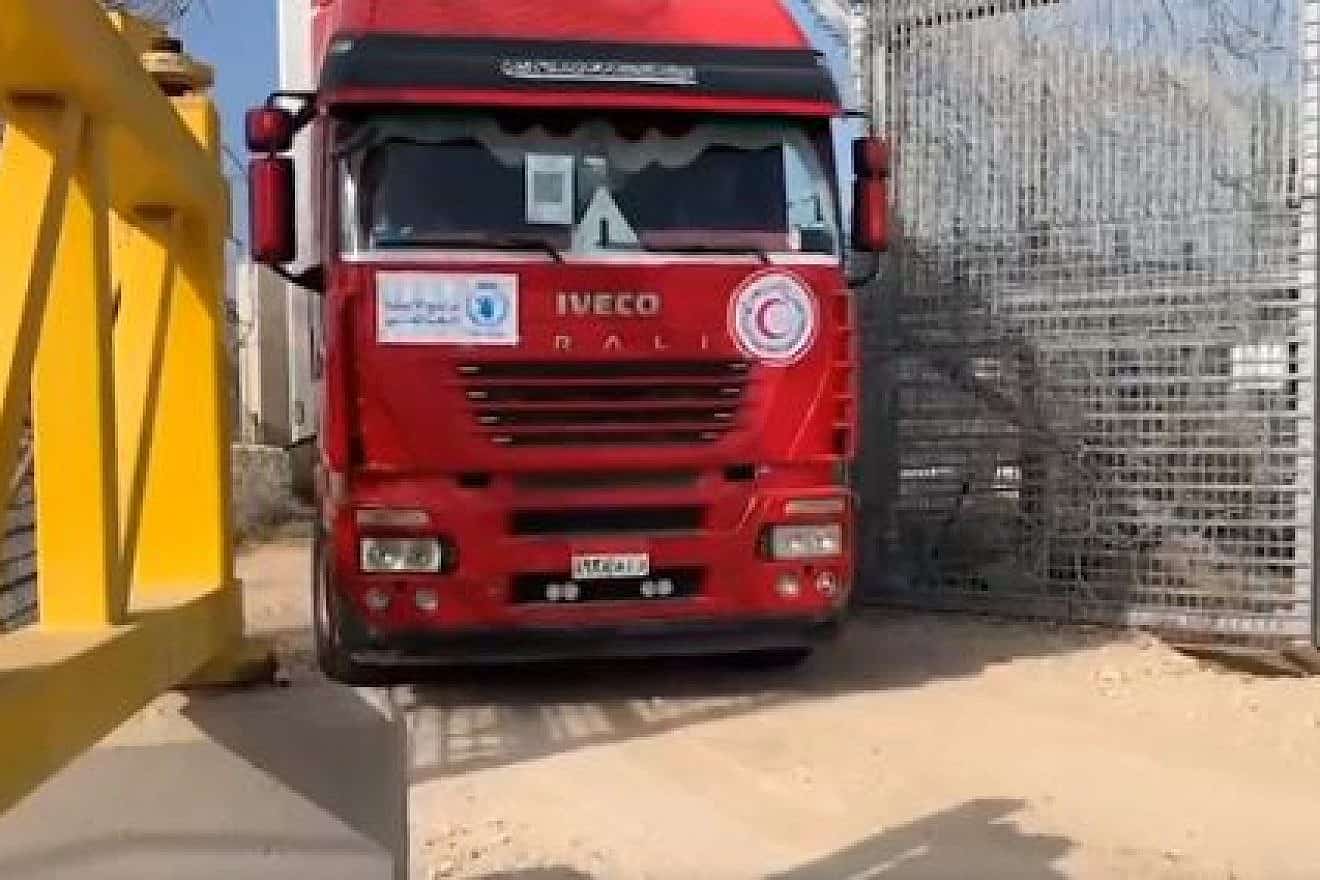Medicines destined for Israeli hostages, but most of which will end up serving the Hamas terrorist organization, entered the Gaza Strip from Egypt, Ynet reported on Wednesday night.
“A senior Hamas official said that for every box provided for the hostages, 1,000 boxes would be sent in for Palestinians,” per AP.
As part of an agreement brokered by France and Qatar, Israel also agreed to allow more aid trucks into Gaza.
The terms of the deal were mired in controversy after it became clear Israel initially agreed to allow the shipment to pass into the coastal enclave without IDF inspection.
According to Channel 12, Prime Minister Benjamin Netanyahu said that he didn’t deal with the inspection arrangements, pointing to the army as the authority responsible for overseeing the shipment.
“The prime minister instructed that medicine be delivered to the hostages, but did not deal at all with the inspection arrangements for their entry, which are determined by the IDF and the security forces,” according to the Prime Minister’s Office.
However, the IDF denied that it had been asked for its opinion on the matter, saying it only learned of the deal from remarks by senior Hamas official Musa Abu Marzouk.
Queried on the issue by JNS on Wednesday, Prime Minister’s Office Spokesman Eylon Levy said that he couldn’t comment on the “specific modalities” of how the aid would enter Gaza.
The issue was eventually resolved, with Ynet reporting that five trucks passed a security check at the Kerem Shalom Crossing on the Israel-Gaza border.
Under the deal brokered by Qatar and France, two Qatari military planes delivered the aid to Egypt’s El Arish airport near the Rafah border crossing with Gaza.
Qatar said its representatives would personally accompany the shipment to its “final destination” in the Strip, according to the Prime Minister’s Office.
“Israel insists that all the medicines reach their destination,” the statement added.
France sent the medicines to Qatar after an agreement with Doha was reached late last week.
French President Emmanuel Macron ordered the foreign ministry in Paris to make a list of medicines for 45 captives who need them and who have been hostages for more than 100 days. They were purchased and delivered to Doha on Saturday.
The Hostages and Missing Families Forum, a group representing relatives of the captives, has said it would demand “visual proof” that the medicine had reached the hostages.
On Saturday, Osama Hamdan, a Hamas terrorist leader in Lebanon, told the France 24 broadcaster that only “some medicine will be used to treat Israeli prisoners.”
According to official figures in Israel, around 136 hostages remain in Gaza, although dozens are believed to be dead. Many of the captives are in desperate need of medical attention.
Mor Hershkovitz, the head of data operations with the Hostages and Missing Families Forum’s medical team, previously told JNS that many were in critical condition or might already be dead.
“Some suffer from serious heart and kidney conditions and should be taking blood-thinning medication. Others were wounded during their brutal kidnapping,” said Hershkovitz. Some of these wounds could lead to death within hours or even minutes, she added.
International law explicitly stipulates the obligation of participants in armed conflict to allow impartial humanitarian bodies such as the International Committee of the Red Cross access to hostages.
According to Fabrizio Carboni, Red Cross regional director for the Near and Middle East, the organization has yet to receive clearance from Hamas to visit the Israeli hostages.


























